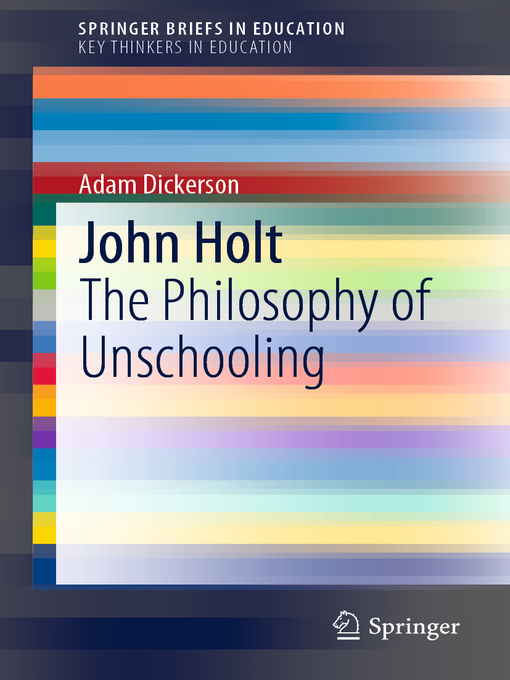This is the first-ever book to offer an analytical study of John Holt's philosophy of education. It provides a clear analysis and critical evaluation of the key themes in his work, considers the main objections to his views, and discusses their relation to the contemporary homeschooling movement. The book examines Holt's critique of compulsory education and his account of the relationships between learning, freedom, intelligence and character. It argues that Holt's works contain a philosophically rich critique of instrumentalism in education, and thus continue to represent a significant challenge to many mainstream views on education today.
Given its scope, the book will be of interest to anyone who wants to understand Holt's work and influence as a critic of compulsory schooling; educators and education students; philosophers of education; and those seeking a better grasp of the ideas behind unschooling and homeschooling.

